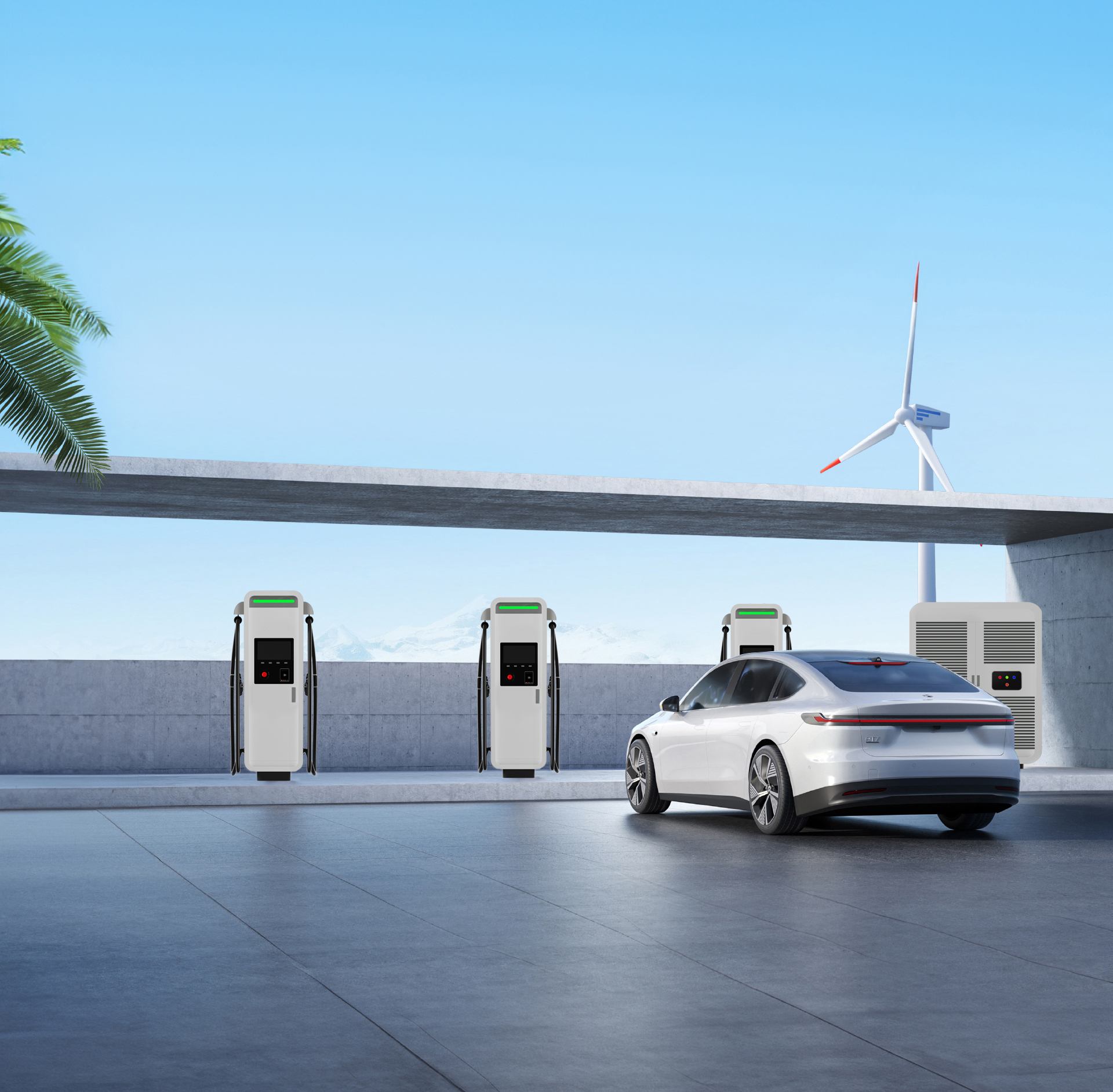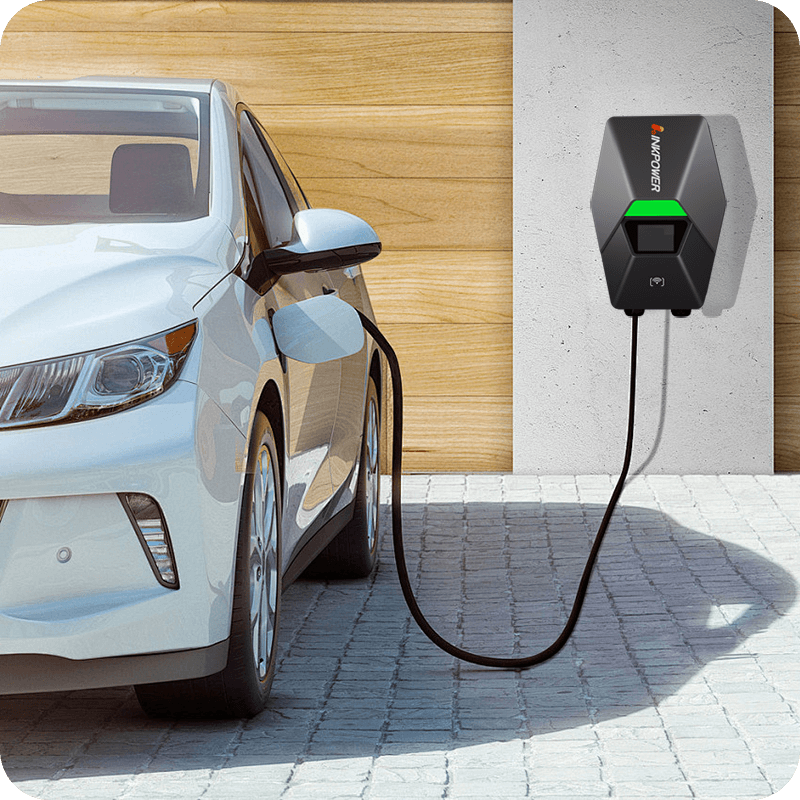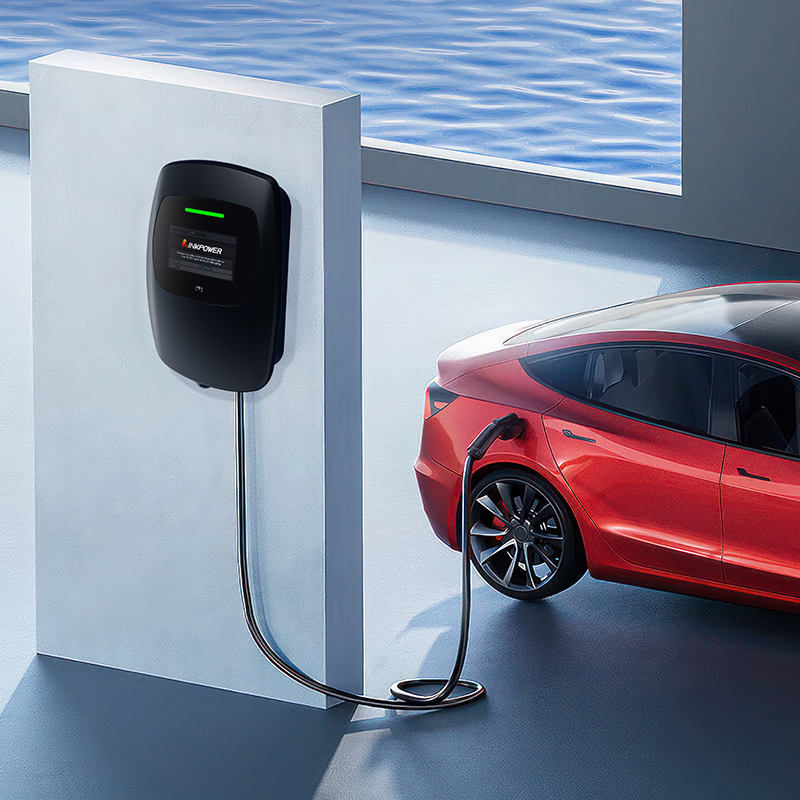The global transition toward electric vehicles (EVs) has gained significant momentum over the last few years. As governments push for greener transportation solutions and consumers increasingly adopt eco-friendly cars, the demand for commercial EV chargers has surged. The electrification of transportation is no longer a trend but a necessity, and businesses have a unique opportunity to participate in this transformation by offering reliable charging infrastructure.
In 2023, it was estimated that over 10 million electric vehicles were on the roads worldwide, and this number is projected to continue rising sharply. To support this shift, the expansion of commercial electric vehicle charging stations is critical. These stations are vital not only for ensuring EV owners can charge their vehicles but also for creating a robust, accessible, and sustainable charging network that facilitates broader adoption of electric vehicles. Whether it’s at a commercial charging station in a shopping center or an office building, EV chargers are now a must-have for businesses looking to meet the needs of today’s environmentally-conscious consumers.
In this guide, we will provide an in-depth look at commercial EV chargers, helping businesses understand the different types of chargers available.
How to Select: Commercial EV Charger Decision Checklist
Use this checklist to inform your selection:
A. Use Case & Dwelling Time: (e.g., Retail Shopping - 1-2 hours -> Level 2 High Power).
B. Parking Availability: (e.g., Fleet Depot -> Level 2 or DCFC based on shift).
C. Electrical Capacity: (Does existing service support the new demand? This is a primary cost factor.)
D. Networked/Non-Networked: (Do you require payment processing or remote monitoring?)
Table Of Contents
1. What Are the Ideal Locations for EV Charging Station Installation?
The success of a commercial EV charger installation depends heavily on its location. Installing charging stations in the right places ensures maximum usage and ROI. Businesses need to carefully evaluate their property, customer behavior, and traffic patterns to determine where to install commercial electric vehicle charging stations.
1.1 Commercial Districts and Shopping Centers
Commercial districts and shopping centers are among the most ideal places for commercial electric vehicle charging stations. These high-traffic areas attract a diverse range of visitors who are likely to spend significant time in the area—making them perfect candidates for EV charging.
EV owners will appreciate the convenience of charging their cars while shopping, dining, or running errands. Commercial car charging stations in these locations offer businesses an excellent opportunity to differentiate themselves from competitors. Not only do they attract environmentally conscious customers, but they also help businesses build their sustainability credentials. Additionally, charging stations in commercial electric car charging points installation in shopping centers can generate additional revenue through pay-per-use models or membership schemes.
1.2 Workplaces
With the growing number of electric car owners, providing EV charging solutions at workplaces is a strategic move for businesses looking to attract and retain talent. Employees who drive electric vehicles will benefit from having access to commercial electric car chargers during working hours, reducing the need for them to rely on home charging.
For businesses, commercial EV charger installation at the workplace can significantly enhance employee satisfaction and loyalty, while also contributing to corporate sustainability goals. It’s a forward-thinking way to show employees that the company supports the transition to clean energy.
1.3 Apartment Buildings
As more people switch to electric vehicles, apartment buildings and multi-family housing complexes are under increasing pressure to provide charging solutions for their residents. Unlike single-family homes, apartment dwellers typically don’t have access to home charging, making commercial EV chargers a necessary feature in modern residential buildings.
Providing commercial electric car charging points installation in apartment buildings can make properties more attractive to potential tenants, especially those who own or plan to purchase an electric vehicle. In some cases, it can also boost property values, as many residents will prioritize homes with EV charging infrastructure.
1.4 Local Service Points
Local service points, such as gas stations, convenience stores, and restaurants, are great spots for commercial EV charging stations. These locations generally see high traffic volumes, and EV owners can charge their vehicles while stopping for fuel, food, or quick services.
1.5 Data Source and Usage Patterns
According to the U.S. Department of Energy (DOE) Alternative Fuels Data Center (AFDC), the average utilization rate for a public Level 2 charger is typically low (around 5-10%), but this is a critical metric for estimating ROI.
By adding commercial car charging stations to local service points, businesses can cater to a broader audience and diversify their revenue streams. Charging infrastructure is becoming increasingly essential in communities, especially as more people rely on electric cars for long-distance travel.
2. How Are Commercial Electric Vehicle Charging Stations Selected?
When selecting a commercial EV charger, several key factors must be considered to ensure the station meets both the business’s needs and those of the EV users. Understanding the types of charging stations and their respective features is crucial for making an informed decision.
2.1 Level 1 Charging Stations
Level 1 charging stations are the simplest and most cost-effective option for commercial electric vehicle chargers. These chargers use a standard 120V household outlet and typically charge an EV at a rate of 2-5 miles of range per hour. Level 1 chargers are ideal for locations where EVs will be parked for extended periods, such as workplaces or apartment buildings.
While Level 1 charging stations are inexpensive to install, they are slower than other options, and may not be suitable for high-traffic areas where EV owners need quick charges.
2.2 Level 2 Electric Vehicle Charging Stations
Level 2 chargers are the most common type for commercial EV chargers. They operate on a 240V circuit and can charge an electric vehicle 4-6 times faster than Level 1 chargers. A commercial Level 2 EV charger, operating at 240V, commonly delivers power from 6 kW (25A) to 19.2 kW (80A). This translates to an estimated 15-60 miles of range per hour. Technical Note:For commercial deployments, NEC Article 625 (EV Power Transfer System) must be followed for all wiring and protective device requirements.
For businesses in locations where customers are likely to stay for longer periods—such as shopping centers, office buildings, and apartments—Level 2 chargers are a practical and cost-effective solution. These chargers are an excellent choice for businesses that want to provide a reliable and relatively fast charging service for EV owners.
2.3 Level 3 Charging Stations – DC Fast Chargers

2.4 Empirical Case Study
A retail client in Texas installed 4 x 19.2kW Level 2 chargers. Their average installation cost per port was $8,500 (before incentives). The key lesson learned: they initially underestimated the wiring run distance, which required upgrading the conduit size, increasing trenching labor by 15%.
Level 3 charging stations, also known as DC fast chargers, offer the fastest charging speeds, making them ideal for high-traffic locations where customers need quick charging. These stations use a 480V DC power source and can charge an EV to 80% in about 30 minutes.
While Level 3 chargers are more expensive to install and maintain, they are essential for supporting long-distance travel and catering to customers who need a fast charge. Locations such as highway rest stops, busy commercial districts, and transit hubs are ideal for DC fast chargers.
3. Commercial Electric Vehicle Charging Station Deals and Discounts in the US
In the U.S., there are various programs and incentives designed to encourage the installation of commercial electric vehicle charging stations. These deals help offset the high upfront costs and make it easier for businesses to invest in EV infrastructure.
3.1 Federal Tax Credits for Commercial Electric Vehicle Chargers
Federal Tax Credit (ITC - 30C): Clarifying the Current Policy (Effective January 1, 2023 - December 31, 2032) - Businesses installing commercial EV chargers may be eligible for the Alternative Fuel Vehicle Refueling Property Credit (IRS Form 8911). This offers up to 30% of the cost (capped at $100,000 per location), provided the installation meets prevailing wage and apprenticeship requirements.
3.2 National Electric Vehicle Infrastructure (NEVI) Formula Programs
This program, administered by the Federal Highway Administration (FHWA), allocates $5 billion to states to build a national network of DC Fast Chargers along designated corridors. Businesses must apply through their state DOT office. For the latest status and requirements, see the official FHWA NEVI website link here.
Through NEVI, businesses can apply for funding to help cover the costs of commercial EV charger installation, making it easier for them to contribute to the growing EV ecosystem.
4. Commercial Electric Vehicle Charging Station Installation Costs
The cost of installing commercial electric vehicle charging stations depends on various factors, including the type of charger, location, and existing electrical infrastructure.
4.1 Commercial Electric Vehicle Charging Station Infrastructure
The infrastructure required for installing commercial EV chargers is often the most expensive aspect of the project. Businesses may need to upgrade their electrical systems, including transformers, circuit breakers, and wiring, to accommodate the power needs of Level 2 or DC fast chargers. Additionally, electrical panels may need to be upgraded to handle the higher amperage required for commercial chargers.
4.2 Electric Vehicle Charging Station Installation
The cost of commercial EV charger installation includes the labor to install the units and any necessary wiring. This can vary depending on the complexity of the installation site. Installing chargers in new developments or properties with existing infrastructure may be less expensive than retrofitting older buildings.
4.3 Networked Electric Vehicle Charging Stations
Networked chargers provide businesses with the ability to monitor usage, track payments, and maintain the stations remotely. While networked systems have higher installation costs, they offer valuable data and operational benefits, making them a worthwhile investment for businesses looking to offer a seamless charging experience to customers.
4.4 Critical Consideration: Load Management and Demand Charges
For commercial sites, simply upgrading the panel isn't enough. Load Management Systems are crucial to safely distribute power and avoid expensive Demand Charges from the utility company, especially for clusters of Level 2 or DCFC units. This planning step requires a licensed electrical engineer to perform a Load Calculation (per NEC) before any physical work begins.
4.5 Simplified Commercial EV Charger Cost Model (Per Port Estimate, Pre-Incentive)
| Item | Level 2 (Single Port) | DCFC (50kW) |
|---|---|---|
| Equipment Cost | $2,000 - $6,000 | $25,000 - $40,000 |
| Electrical/Infrastructure Upgrade (Trenching, Conduits, Main Panel) | $3,000 - $10,000 | $40,000 - $100,000 |
| Installation Labor | $1,500 - $4,000 | $10,000 - $25,000 |
| Total Estimated Cost (Range) | $6,500 - $20,000 | $75,000 - $165,000 |
Note: Infrastructure costs vary heavily based on distance to the utility connection.
5. Public Commercial Electric Vehicle Charging Stations
The installation and maintenance of public commercial electric vehicle charging stations require special considerations to ensure that the stations remain functional and accessible to all EV owners.
5.1 Commercial Electric Vehicle Charging Station Connector Compatibility
Commercial EV chargers use different types of connectors, including SAE J1772 for Level 2 chargers, and CHAdeMO or CCS connectors for DC fast chargers. It’s important for businesses to install commercial electric vehicle charging stations that are compatible with the connectors most commonly used by the EVs in their area.
5.2 Maintenance of Commercial Electric Vehicle Charging Stations
Routine maintenance is essential for ensuring that commercial EV charging stations remain operational and reliable. This includes software updates, hardware inspections, and troubleshooting issues like power outages or connectivity problems. Many businesses opt for service contracts to ensure their commercial EV chargers are properly maintained and continue to provide reliable service to customers.
As electric vehicles continue to gain popularity, the demand for commercial EV charging stations is only expected to rise. By carefully selecting the right location, charger type, and installation partners, businesses can capitalize on the growing need for EV infrastructure. Incentives such as federal tax credits and the NEVI program make the transition to commercial EV chargers more affordable, while ongoing maintenance ensures that your investment remains operational for years to come.
Whether you're looking to install commercial level 2 EV chargers at your workplace or a network of DC fast chargers at a shopping center, investing in commercial EV charging stations is a smart choice for businesses that want to stay ahead of the curve. With the right knowledge and planning, you can create a charging infrastructure that not only meets the needs of today but is also prepared for the EV revolution of tomorrow.
Post time: Dec-03-2024




